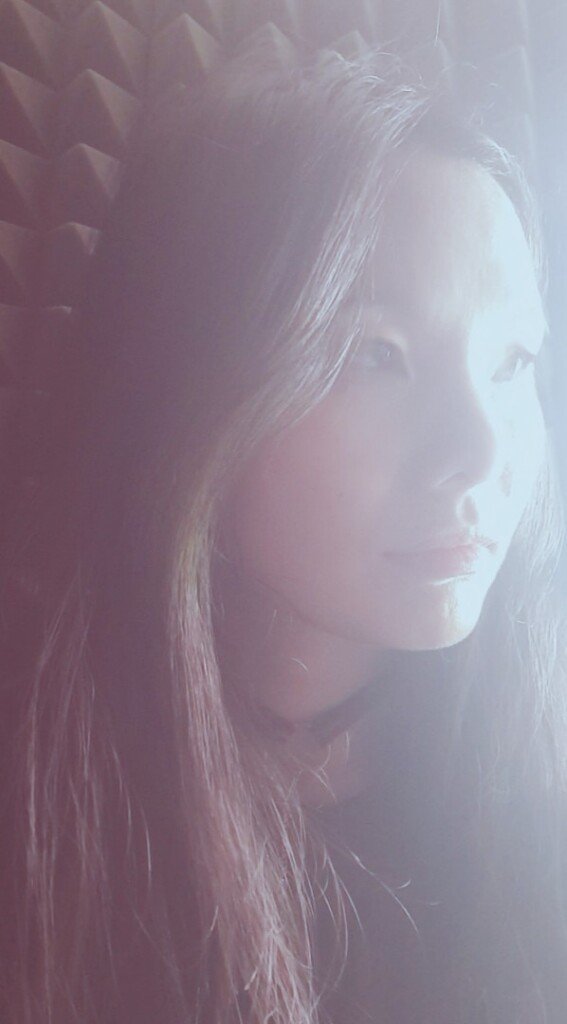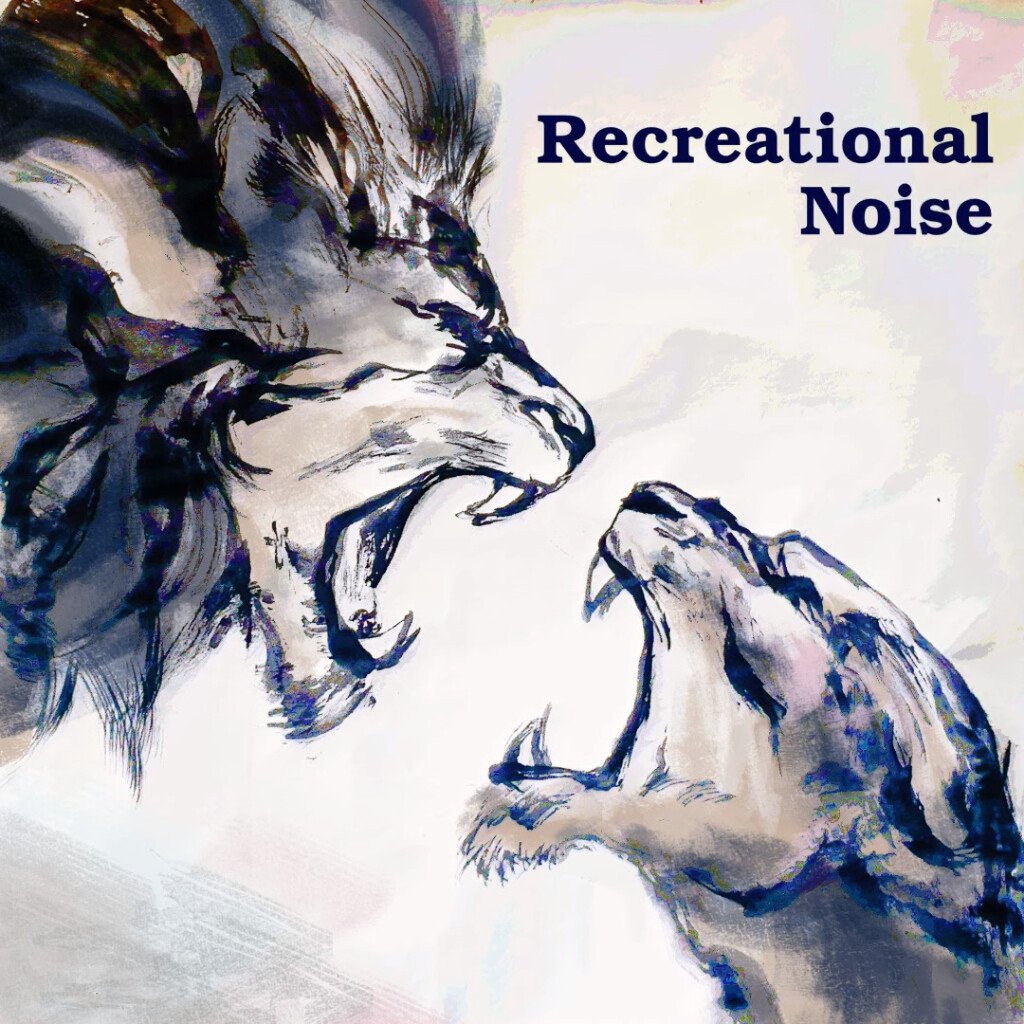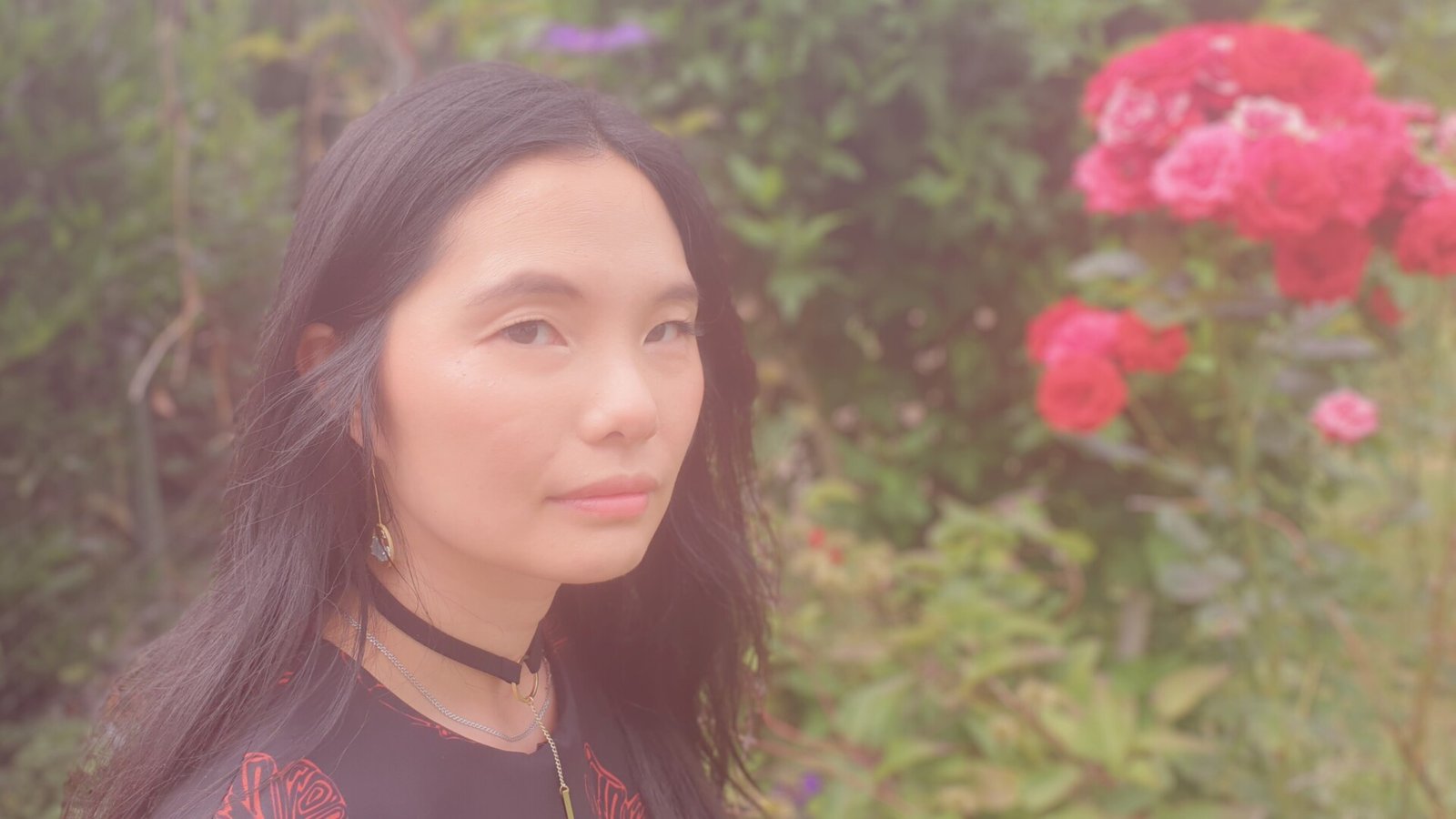Flora Lin is a singer-songwriter who loves to collaborate with other musicians and meet their musical worlds. Her genres of predilection are alternative rock and dream pop. Her latest album, Flora, in collaboration with , will unfold her personal stories interwoven with the symbolism of flowers —a metaphor for fragility, and fragrant memories. Each song is a journey of growth, capturing the essence of blossoming into one’s true self while embracing imperfections, letting go of the burdens of the past. It draws influences from Shoegaze and Post-Rock influences such as Spangle Call Lilli Line, Gestalt Girl, Foxing, Caspian, Moving Mountains. Check out the exclusive interview below:

1. Your roots can often shape your journey. Can you share a story or moment from your early life that had a significant impact on your path into music?
Flora Lin: Ever since I was young, music was like magic to me, and I wanted to learn the tricks behind the magic.
I remember watching music videos and eagerly waiting until the end so I could catch the credits, and read the tiny names crafting the songs I loved. My biggest revelation was Mariah Carey. It wasn’t just her incredible voice or her charisma that fascinated me, it was the fact that her name often appeared in the songwriting credits. Later, I had the same fascination with the Spice Girls, who would share their credits equally. While I only started writing songs in my 20’s, my obsession with songwriting has always been there.
2. Did your musical journey begin with formal training, or was it more of a personal exploration? How has that shaped your unique approach to your craft?
Recreational Noise: I started learning piano at a young age and transitioned to guitar around age 12. My early guitar training was very much rooted in blues as my teacher was a regionally popular blues player. As time went on, I gravitated to post-rock style music when I began first experimenting with writing. Eventually that lead me to my first main project, Arbor Atlantic, that began as experimenting in various forms of rock. After a few years, I became much more comfortable in writing, and began to mold my current approach which is generally to avoid trying to write something specific, and instead allow the emotion or feeling of the moment I begin to write take hold and allow that to shape what is recorded. That for me was the key – freeing myself of trying to mold a song into a specific shape, and switching to letting whatever happens happen.
3. Who were some of the most influential figures in your early musical life, and how did they inspire your sound? Also, what’s the story behind choosing the name ‘Flora Lin’?
Flora Lin: I would say that my number one influence is Fiona Apple. I’ve always admired her honesty and unwavering authenticity. Her ability to stay true to her feelings and express them so powerfully through her music truly inspired me. Listening to her, I learned the importance of vulnerability and staying true to myself, which I try to infuse into my own music.
As for my stage name, ‘Flora Lin,’ it was a bit of a random choice. I was playing Professor Layton at the time and needed to choose a name for a performance. Flora was a character from the game series. I liked the name and thought it would sound good combined with ‘Lin’.
Actually, ‘Flora Lin’ sounds so good that in France it is the name of a cereal preparation, spelled ‘Floraline.’
4. What do you believe sets your music apart? How would you describe your sound to someone discovering you for the first time, and what emotions or experiences do you hope to evoke in your listeners?
Flora Lin: I’ve always preferred music that combines unlikely genres, like intricate math rock patterns with catchy pop, intense industrial sounds with smooth R&B.
I try to apply this to my music, which is a fusion of alternative rock with experimental sounds, blending shoegaze’s dreamy layers with soulful harmonies.
When it comes to my lyrics I dive deep into introspection and explore the complex processes of the mind and soul.
I try to translate those inner journeys into songs that inspire listeners to see beyond a black and white, right or wrong perspective.
Recreational Noise: I’d say Flora perfectly captured the sound/style we’ve been working in, and she has a major part in shaping the instrumentals into even more evocative emotions through her lyrics and melody. As far as what emotions I hope to evoke, my goal is always to have the listener feel something, anything. I tend to write instrumentals or lyrics in a more surreal nature, so the listener’s feeling could be different from my intention – but as long as the listener experiences some type of emotion or has a connection, that is all I would ever hope for.

5. For most artists, originality is first preceded by a phase of learning and, often, emulating others. What was this like for you? How would you describe your own development as an artist and music maker, and the transition towards your own style, which is known as INDIE?
Flora Lin: When I first started making music, I explored a wide range of genres, from folk and electro-pop to chill-hop and metal, without trying to define a specific sound. This initial phase was about experimentation and learning through collaborations with different producers.
Two key partnerships were a strong influence for me. The first was with DHXP (https://dhxp.bandcamp.com/), whose work blends electronic music with pop and metal. Together, we formed an experimental pop band called Cosmoose (https://cosmoose.bandcamp.com/).
The second was with Recreational Noise (https://recreationalnoise.bandcamp.com/), who combines post-rock, shoegaze, and metal elements. Our collaboration resulted in the album ‘Flora’ and the upcoming concept EP ‘Fauna’, featuring the single ‘Lion, Pt. 2’.
These collaborations helped me identify the musical elements I wanted in my own sound, such as stoner, industrial glitches, and soulful harmonies. It’s the sounds that can be found in the few songs I release alone.
6. Music often transcends entertainment. What’s your view on the role and function of music as political, cultural, spiritual, and/or social vehicles – and do you try and affront any of these themes in your work, or are you purely interested in music as an expression of technical artistry, personal narrative, and entertainment?
Flora Lin: They say a picture is worth a thousand words, and to me, a song can be just as powerful. A simple melody or lyric can make me cry, make my day, make me want to pause, reflect, and think. It definitely transcends entertainment, and as a songwriter, I do like to dissect some innocent pop song songs and think about the true message.
In my music, I try to make the stories relatable and universal, while having an intimate and introspective feel.
7. Do you feel the rewards of your musical career match the energy and passion you invest in it, or are there different kinds of fulfillment you’re still seeking?
Flora Lin: Reflecting on my musical journey, I realize that my most precious reward is to collaborate with so many talented musicians. It’s definitely not something I could have imagined 10 years ago. Getting to know these awesome people is honestly what motivates me to keep writing songs.
Most of my collaborations are online though, so I think my dream would be to be in a band!
8. Can you walk us through your creative process? From the first spark of an idea to the finished track, what’s the most essential part of your process, and how do collaboration or external influences shape your work?
Flora Lin: I have lots of unfinished stories in my head, and I’m not satisfied when working alone because there’s no surprise, nothing unpredictable. That’s why I mostly do collaborations. Recreational Noise often unknowingly writes the soundtracks to my stories, and also inspires me to properly finish them.
Recreational Noise: For me, I tend to start with a melody or idea for a riff. Usually that allows me to build another layer, or hints at what I hear coming next. From there, it’s pretty much just allowing each addition to guide the one that comes after or goes over a piece of instrumentation, eventually leading to a full song. I try mostly to allow the instrumental song to write itself in that regard, as opposed to me writing it as once, or forcing a section where it might not feel natural.
9. Creative work in a studio or home environment, or interaction with a live audience?
Which of these two options excites you most, and why?
Flora Lin: I started with a home studio, and truly feel at home there. This is where I can freely write, and at heart I am more of a songwriter than a performer. However, performing in public gives an indescriptible kind of positive energy. It’s truly liberating, it’s about making everyone have a great time, which is magical. I just think these are two completely different worlds, and I’m glad we can have the best of both worlds!
10. Do you think is it important for fans of your music to understand the real story and message driving each of your songs, or do you think everyone should be free to interpret your songs in their own personal way?
Flora Lin: While I want the songs to be memorable on their own, without necessarily understanding the lyrics or theme, there is an underlying story behind a lot of my songs. With our production having a shoegaze feel, the lyrics are usually not the main focus. However I am thrilled when someone has an interpretation of the lyrics, or understands the story behind the song.
STAY IN TOUCH:
FACEBOOK | INSTAGRAM | SPOTIFY | BANDCAMP | WEBSITE | YOUTUBE


